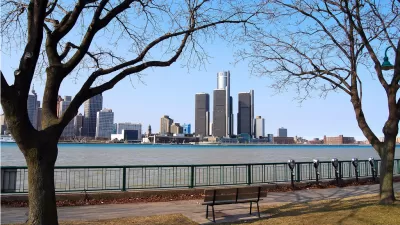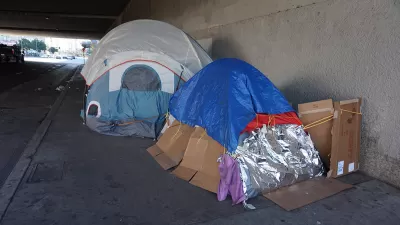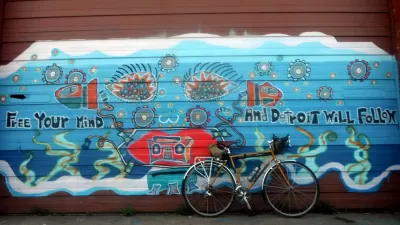Do the stylized pictures of crumbling edifices and the recent incorporation of a vacant home in an art show do a disservice to the residents—mostly poor and black—who still call Detroit home?

In an article for The Guardian, Brian Doucet and Drew Philip argue against the artistic portrayal of vacant homes and crumbling buildings in Detroit—imagery they describe as "ruin porn." Doucet and Philp cite a project by artist Ryan Mendoza that transported a vacant Detroit home to Rotterdam where it was included as part of the Rotterdam Art Fair. They argue that the fetishization of Detroit as a city in ruins is a simplistic one that ignores the people who still call the city home.
"Ruin porn” is based purely on aesthetics and is almost always devoid of people. Employing the mismatched spoils of history, ruin porn ignores and overwrites the voices of those who still call Detroit home. When its ruins are fetishised as art, these injustices are, at best, ignored, and, at worst, mimicked. They ignore the humanity of residents’ current struggles, while replicating the history that created them.
FULL STORY: In Detroit ‘ruin porn’ ignores the voices of those who still call the city home

Planetizen Federal Action Tracker
A weekly monitor of how Trump’s orders and actions are impacting planners and planning in America.

Restaurant Patios Were a Pandemic Win — Why Were They so Hard to Keep?
Social distancing requirements and changes in travel patterns prompted cities to pilot new uses for street and sidewalk space. Then it got complicated.

Maui's Vacation Rental Debate Turns Ugly
Verbal attacks, misinformation campaigns and fistfights plague a high-stakes debate to convert thousands of vacation rentals into long-term housing.

In California Battle of Housing vs. Environment, Housing Just Won
A new state law significantly limits the power of CEQA, an environmental review law that served as a powerful tool for blocking new development.

Boulder Eliminates Parking Minimums Citywide
Officials estimate the cost of building a single underground parking space at up to $100,000.

Orange County, Florida Adopts Largest US “Sprawl Repair” Code
The ‘Orange Code’ seeks to rectify decades of sprawl-inducing, car-oriented development.
Urban Design for Planners 1: Software Tools
This six-course series explores essential urban design concepts using open source software and equips planners with the tools they need to participate fully in the urban design process.
Planning for Universal Design
Learn the tools for implementing Universal Design in planning regulations.
Heyer Gruel & Associates PA
JM Goldson LLC
Custer County Colorado
City of Camden Redevelopment Agency
City of Astoria
Transportation Research & Education Center (TREC) at Portland State University
Camden Redevelopment Agency
City of Claremont
Municipality of Princeton (NJ)




























